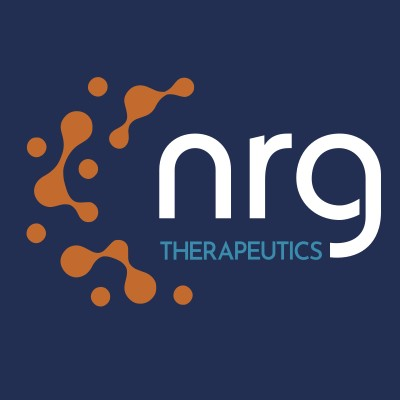NRG Therapeutics Secures £50M to Advance Neurodegenerative Disease Therapies
September 8, 2025, 9:33 pm
NRG Therapeutics just closed a monumental £50 million Series B financing. This oversubscribed round fuels vital neurodegenerative disease research. The UK-based firm targets mitochondrial dysfunction. Its lead program, NRG5051, aims to treat Parkinson's disease and ALS/MND. NRG5051 showed potent neuroprotection in preclinical studies. It enters human clinical trials in early 2026. The substantial capital injection ensures progress towards clinical proof of concept for ALS/MND. It also enables critical Phase 1b data generation for Parkinson's. This investment marks a significant advance. It offers new hope for millions suffering from these debilitating conditions. The focus remains on disease-modifying treatments, addressing vast unmet medical needs.
NRG Therapeutics, a pioneering neuroscience company, announced a significant financial milestone. The company secured £50 million ($67 million) in an oversubscribed Series B funding round. This capital infusion accelerates the development of novel therapies. The target: devastating neurodegenerative disorders. This funding represents a major vote of confidence from leading life science investors. It propels critical research forward.
SV Health Investors’ Dementia Discovery Fund (DDF) led the financing. DDF specializes in dementia therapeutics. This indicates a strong belief in NRG’s scientific approach. A powerful syndicate joined DDF. British Business Bank, M Ventures, Novartis Venture Fund, and Criteria Bio Ventures participated. Existing investors Omega Funds and Brandon Capital also recommitted. Parkinson’s UK, a founding investor, remains a key supporter. This diverse investor base strengthens NRG’s position.
The new funds have clear objectives. They will drive NRG Therapeutics to clinical proof of concept (PoC) in amyotrophic lateral sclerosis (ALS). ALS is also known as motor neurone disease (MND). The investment also enables meaningful clinical data generation in Parkinson’s patients. This will occur through a Phase 1b study. These are crucial steps toward bringing new treatments to market.
NRG’s scientific strategy is innovative. The company targets mitochondrial dysfunction. Mitochondria are vital for cellular energy. They are especially critical in brain cells. Neurons in the substantia nigra (Parkinson's) and motor neurons (ALS/MND) demand high energy. Their health depends on robust mitochondrial function. Dysfunction contributes to neurodegenerative disease pathology.
The company identified a novel regulator. This regulator controls the mitochondrial permeability transition pore (mPTP). Pore opening is essential for this process. NRG developed a new class of small molecule mPTP inhibitors. These inhibitors are designed for oral administration. They effectively penetrate the brain. This delivery method offers convenience and broad accessibility for patients.
NRG’s lead development candidate is NRG5051. Pre-clinical models show profound neuroprotection with NRG5051. It significantly reduces neuroinflammation. This effect was observed in models of both Parkinson’s and ALS/MND. Such early data provides strong optimism. It suggests the potential for disease modification.
NRG5051 has completed IND-enabling studies. It is now on track to enter first-in-human clinical studies. This significant step is anticipated in early 2026. The Series B financing directly funds these critical development stages. It ensures the program can advance rapidly. This brings patients closer to potential new treatments.
Neurodegenerative diseases represent an immense global health challenge. Parkinson’s disease is rapidly growing. Its global prevalence is projected to double by 2050. Current treatments offer only temporary symptomatic relief. No therapy exists to slow or halt its progression. This creates an urgent unmet medical need. Millions suffer without effective options.
ALS/MND is another devastating condition. It is a rare, rapidly progressing neurodegenerative disease. Patients face a high unmet medical need. While a few recent approvals offer limited hope, most patients with sporadic disease still lack effective treatment. NRG aims to address this critical gap.
Pathological proteins are implicated in these diseases. Alpha-synuclein in Parkinson's and TDP-43 in ALS/MND are examples. These proteins are toxic to mitochondria. They contribute directly to mitochondrial dysfunction. This dysfunction is a common underlying pathology. Inhibiting mPTP opening protects mitochondria. It safeguards neurons in preclinical models. This scientific foundation underpins NRG’s approach.
The investment has broader implications. It signals a growing interest in novel mechanisms for neurodegenerative disorders. The aging global population increases the prevalence of these conditions. Developing new drugs is challenging. However, the potential impact on public health is enormous. This funding offers new hope. It aims to improve the lives of countless individuals and their families.
The financing round also strengthened NRG’s leadership. New board members have been appointed. Laurence Barker (SV Health Investors), Emma Johnson (British Business Bank), Charlotte Kremers (M Ventures), and Florian Muellershausen (Novartis Venture Fund) joined. Additionally, Professor David Dexter from Parkinson’s UK was appointed as a special advisor. This expands the company’s expertise and strategic guidance.
NRG Therapeutics, based in Stevenage, UK, focuses on a pipeline of disease-modifying mitochondrial therapeutics. Its small molecule assets inhibit the mPTP through a novel mechanism. This inhibition has shown promise. It protects neurons, reduces neuroinflammation, and improves motor function in preclinical models. The company's ongoing R&D programs have also received support from other organizations. These include Innovate UK, The Michael J. Fox Foundation, Target ALS, and The ALS Association. The future of neurodegenerative disease treatment looks more promising with such concerted efforts.
NRG Therapeutics, a pioneering neuroscience company, announced a significant financial milestone. The company secured £50 million ($67 million) in an oversubscribed Series B funding round. This capital infusion accelerates the development of novel therapies. The target: devastating neurodegenerative disorders. This funding represents a major vote of confidence from leading life science investors. It propels critical research forward.
SV Health Investors’ Dementia Discovery Fund (DDF) led the financing. DDF specializes in dementia therapeutics. This indicates a strong belief in NRG’s scientific approach. A powerful syndicate joined DDF. British Business Bank, M Ventures, Novartis Venture Fund, and Criteria Bio Ventures participated. Existing investors Omega Funds and Brandon Capital also recommitted. Parkinson’s UK, a founding investor, remains a key supporter. This diverse investor base strengthens NRG’s position.
The new funds have clear objectives. They will drive NRG Therapeutics to clinical proof of concept (PoC) in amyotrophic lateral sclerosis (ALS). ALS is also known as motor neurone disease (MND). The investment also enables meaningful clinical data generation in Parkinson’s patients. This will occur through a Phase 1b study. These are crucial steps toward bringing new treatments to market.
NRG’s scientific strategy is innovative. The company targets mitochondrial dysfunction. Mitochondria are vital for cellular energy. They are especially critical in brain cells. Neurons in the substantia nigra (Parkinson's) and motor neurons (ALS/MND) demand high energy. Their health depends on robust mitochondrial function. Dysfunction contributes to neurodegenerative disease pathology.
The company identified a novel regulator. This regulator controls the mitochondrial permeability transition pore (mPTP). Pore opening is essential for this process. NRG developed a new class of small molecule mPTP inhibitors. These inhibitors are designed for oral administration. They effectively penetrate the brain. This delivery method offers convenience and broad accessibility for patients.
NRG’s lead development candidate is NRG5051. Pre-clinical models show profound neuroprotection with NRG5051. It significantly reduces neuroinflammation. This effect was observed in models of both Parkinson’s and ALS/MND. Such early data provides strong optimism. It suggests the potential for disease modification.
NRG5051 has completed IND-enabling studies. It is now on track to enter first-in-human clinical studies. This significant step is anticipated in early 2026. The Series B financing directly funds these critical development stages. It ensures the program can advance rapidly. This brings patients closer to potential new treatments.
Neurodegenerative diseases represent an immense global health challenge. Parkinson’s disease is rapidly growing. Its global prevalence is projected to double by 2050. Current treatments offer only temporary symptomatic relief. No therapy exists to slow or halt its progression. This creates an urgent unmet medical need. Millions suffer without effective options.
ALS/MND is another devastating condition. It is a rare, rapidly progressing neurodegenerative disease. Patients face a high unmet medical need. While a few recent approvals offer limited hope, most patients with sporadic disease still lack effective treatment. NRG aims to address this critical gap.
Pathological proteins are implicated in these diseases. Alpha-synuclein in Parkinson's and TDP-43 in ALS/MND are examples. These proteins are toxic to mitochondria. They contribute directly to mitochondrial dysfunction. This dysfunction is a common underlying pathology. Inhibiting mPTP opening protects mitochondria. It safeguards neurons in preclinical models. This scientific foundation underpins NRG’s approach.
The investment has broader implications. It signals a growing interest in novel mechanisms for neurodegenerative disorders. The aging global population increases the prevalence of these conditions. Developing new drugs is challenging. However, the potential impact on public health is enormous. This funding offers new hope. It aims to improve the lives of countless individuals and their families.
The financing round also strengthened NRG’s leadership. New board members have been appointed. Laurence Barker (SV Health Investors), Emma Johnson (British Business Bank), Charlotte Kremers (M Ventures), and Florian Muellershausen (Novartis Venture Fund) joined. Additionally, Professor David Dexter from Parkinson’s UK was appointed as a special advisor. This expands the company’s expertise and strategic guidance.
NRG Therapeutics, based in Stevenage, UK, focuses on a pipeline of disease-modifying mitochondrial therapeutics. Its small molecule assets inhibit the mPTP through a novel mechanism. This inhibition has shown promise. It protects neurons, reduces neuroinflammation, and improves motor function in preclinical models. The company's ongoing R&D programs have also received support from other organizations. These include Innovate UK, The Michael J. Fox Foundation, Target ALS, and The ALS Association. The future of neurodegenerative disease treatment looks more promising with such concerted efforts.

